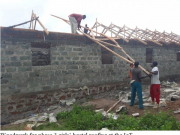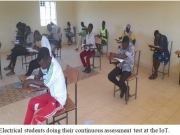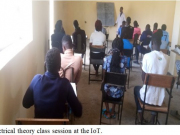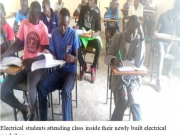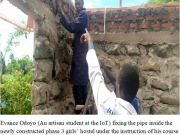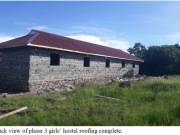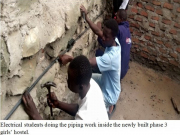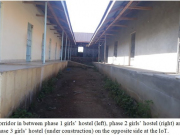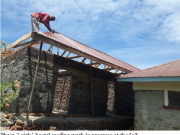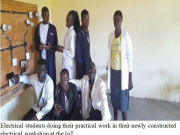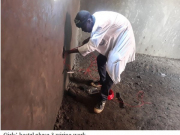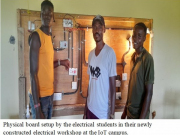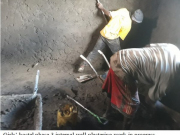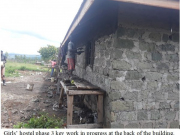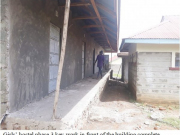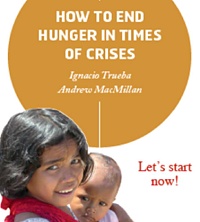Dear Friends of Got Matar,
This is just to keep you in the picture about things going on in Kenya, which is a great source of pleasure for us!
It struck me a couple of months ago that our relationship as donors with the Got Matar Community Development Group had been running well for 21 years and hence that it has come of age by traditional British standards.
In Kenya coming of age is taken pretty seriously. It is celebrated in many different ways and at various ages, according to gender and local custom. In most cases it takes place as children reach puberty but, whatever their age, the aim is to formally endow them with greater responsibilities for shaping their own lives and to guide them on how to conduct themselves correctly: it is also a time for festivity, including much dancing and feasting.
In a sense, the Got Matar Community Development Group (GMCDG), has now come of age and it and we, as donors, have much to celebrate. Its future looks secure but much can still be done to increase its impact on the local economy and standards of living.
As many of you will recall, the Group was set up in 2002 at the height of Kenya’s HIV/AIDS epidemic that had killed many of Bondo District’s working-age population and left a third of its children orphaned. Thanks to the vision of Grace Ochieng Andiki, a primary school teacher and small-scale farmer, the Group accepted that their community had ‘lost a generation’ and that its members must do all within their capacity to ensure that the younger generation would be assured of a decent future by investing in providing them all with high quality education.
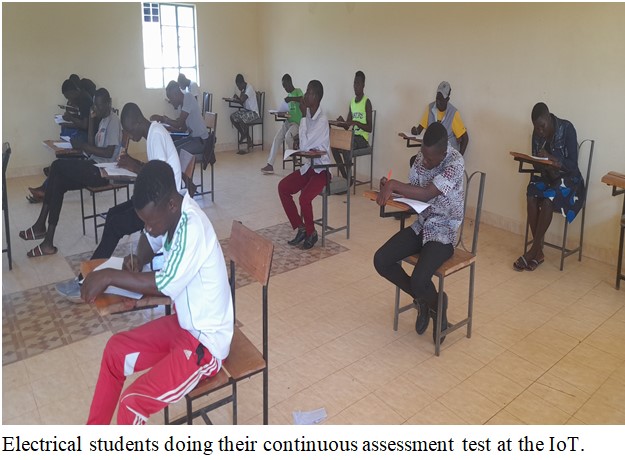
With Grace still at the helm as the voluntary Programme Coordinator and with your generous support over these years as donors, the GMCDG has stuck to its goals and completely transformed the local education system. After upgrading its 10 primary schools, it began in 2007 to build a new 600-place Secondary School whose first graduates emerged in 2010: now it has doubled student numbers to 1,200 and is taking in 400 new students each year, implying an eventual total of 1,600. of whom 80 have been awarded scholarships by a donor and former alumni.
In 2012 the Group embarked on creating an Institute of Technology (IoT) that already provides opportunities for hundreds of young people to acquire practical skills that are in growing demand as Kenya’s economy diversifies and expands. The main focus for the use of donor funds in recent years has been to build and equip up-to-date purpose-built training workshops for the 10 subjects for which diploma courses are offered. These include beauty therapy, food and beverage, dress-making, vehicle mechanics, masonry, electrification, carpentry, metalwork, ICT (computers), and plumbing. It also has built a girls’ hostel and a nursery for the young children of students and staff.
While the primary and secondary schools are run by the Department of Education, the IoT is owned and managed by the Community with the intention that it should run as a financially self-sustaining enterprise that meets its operating costs from tuition fees and from income from sales of goods and services. It relies on donors for the required investments in new facilities which improve its ability to attract more students.
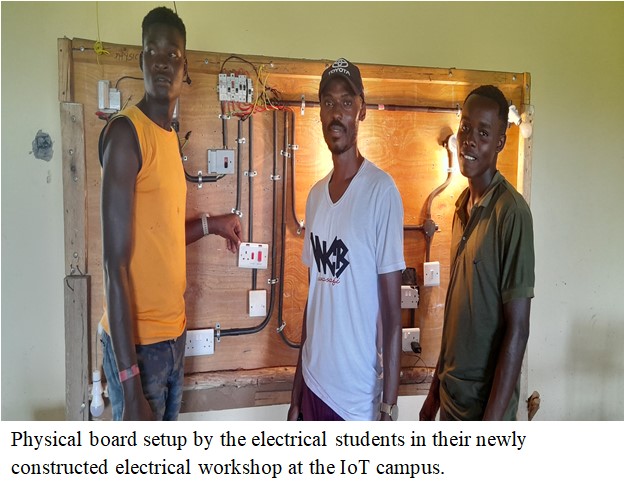
2023 has been a good year for the IoT. The completion within the year of two new specialised training workshops – for plumbers and electricians – that together form the ground floor of the first two-storey building on the IoT campus, means that all training subjects now have up-to-date facilities. This was made possible by the generosity of ‘traditional’ donors dipping deeper into their pockets, as well as by the guests invited to their wedding by Francesco Possio and his bride, Clementina Grossi. Together, they contributed Euro 34,000 to build and equip the electricians’ workshop.. What an admirable way of celebrating matrimony!
Many thanks for helping so much over the years……
Construction of the third phase of the IoT girls’ hostel, financed by Fondation BERFRED, began in September and is already nearing completion and will bring total boarding capacity for 90 students. The presence of the hostel and nursery have done much to lead to well over half of the IoT’s students being girls. The boys from distant villages are now telling us that they also need a hostel, and it is amongst the planned buildings for 2024.
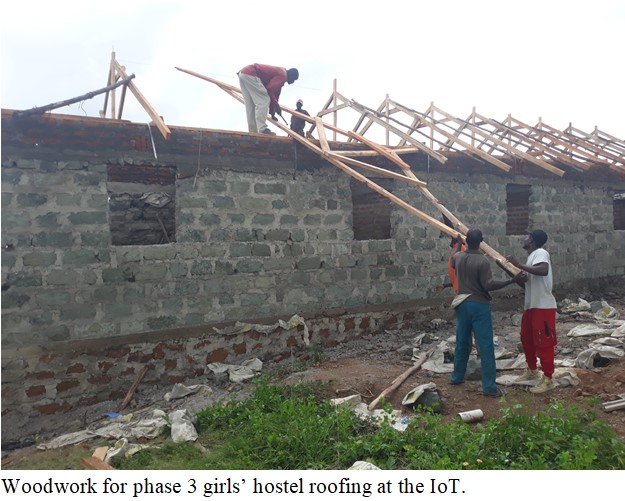
I am attaching a letter that Grace has asked me to share with you in which she conveys the Community’s gratitude for the enormous help contributed by donors. My reaction is to thank her and the Community for giving all of us the satisfaction that arises from knowing that our donations are being put to really good use, helping to transform the lives of young people who have been born into a society that had been decimated by drought and disease just some 20 years ago, and where there is still sadly a significant level of HIV infection..
Students and staff are being increasingly engaged, alongside contractors, in the building and furnishing of new facilities, gaining practical experience and income.
A lot has been achieved but there is still plenty of room for further life-changing investments especially in relation to the future development of the IoT. Now that vital investments have been made in subject-specific training facilities for all on-going courses, the focus will shift mainly towards improving the amenities required for the provision of competent management services and to encourage the emergence of valuable interdisciplinary connections between staff and students attached to different specialised courses. The time has come to nurture a growing sense of ‘belonging’ within the IoT which until now has been essentially a collection of single purpose courses with few cross-connections.
This challenge will be addressed mainly by creating an administration block, including space for interaction between teachers and other staff, and by building a dining room for students and staff which could also be used as an indoor assembly room and venue for special events. If there is a demand for additional courses, including possibly on business management, these would be located on the second floor of the half-completed two-storey building. Other priorities include a boys’ hostel as well as on-site housing for senior staff and the gate-keeper. As water demand is rising, investments are planned for additional underground roof-water storage capacity. The total estimated cost of these improvements will be about Euro 150,000, equivalent to about £130,000 or US$160,000.
Related steps have already been taken to further close the current gap between the Institute’s income and its operating costs with the aim of meeting its goal of financial self-sufficiency within 2 to 3 years.. These include a drive to increase enrolment from around 350 students to 500; the replacement of the present part-time manager’s post with a full-time position, and the recruitment of a production manager to greatly boost the income raised from the sale of goods and services by each of the training departments.
There are 3 different routes through which you can make donations to the Got Matar Community Development Group’s investment programme. Full details are provided in the Got Matar website section on donations.
Briefly,
1. Donations in any currency (but especially in £ sterling) may be sent via Ace Africa (UK) for forwarding to GMCDG.
2. Donations in Euros may be sent via La Karibu ONLUS for forwarding to GMCDG.
3. Donations in any currency may be sent directly to GMCDG’s bank account in Kenya.
If you need any advice or want to discuss how to give, please contact me at andrew.macmillan97@gmail.com or by phone at either 0039 3462219179 or 0039 0564507930
I feel confident that, by pulling together and bringing on board additional donors, we shall enable GMCDG to achieve its immediate aims
With our very best wishes for Christmas, and the hope that 2024 will open the door to a fairer and more peaceful world…..
Andrew and Roberta
Please click here to read LETTER FROM GRACE OCHIENG ANDIKI who can be contacted at ochienggrace2012@gmail.com
You may also be interested to learn that Grace has recently launched a Trust in memory pf her daughter who died, aged 30, from sickle cell disorder, a disease that is widespread in western Kenya. The Rosaline Emile Awino Trust is promoting early diagnosis of the illness so that lives can be prolonged by timely treatment. See https://roselinetrust.or.ke/
